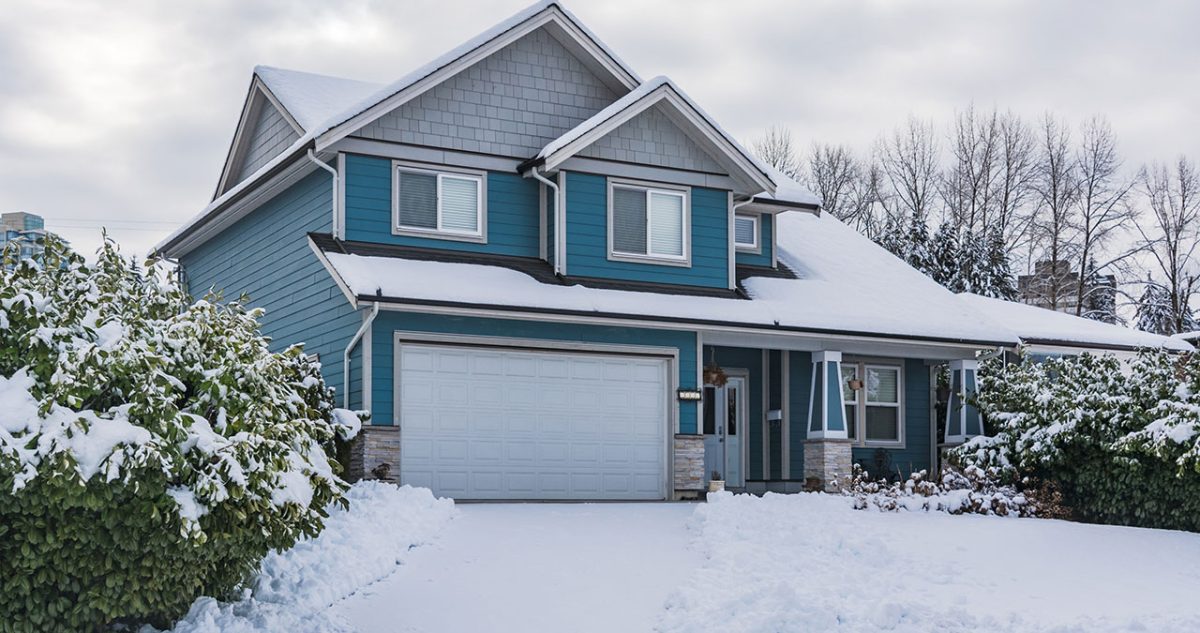
Heat pumps are valued by homeowners for their energy efficiency, but one question we’re often asked is, “Will a heat pump work in winter?” As a trusted HVAC company in the Des Moines area, we’re here to dispel the misconception that a heat pump can’t be used in areas with cold winters.
In short, the answer is yes, a heat pump can work in the winter. In fact, heat pumps have been used effectively even in homes in the Arctic Circle. However, if you live in an area with cold winters, there are some important considerations to be aware of before investing in a heat pump or converting to a dual fuel system.
How Does a Heat Pump Work?
Heat pumps work by transferring heat from one place to another. Similar to the way an air conditioner works, refrigerant captures the heat and then releases it. A heat pump can provide both cooling in the summer months and consistent heating during the winter while keeping energy costs down. And because they’re not burning fuel to generate heat through a natural gas furnace, they’re incredibly energy efficient and environmentally friendly.
Geothermal heat pumps transfer heat between a building and the ground, while air source heat pumps transfer heat between a home and the outside air. When people question whether a heat pump can heat a home during the winter, they’re usually thinking of air source heat pumps. After all, how can there be any heat in the air when the outside temperature is below freezing?
The good news is, even during cold temperatures, a heat pump can still extract heat energy from the air.
Can Heat Pumps Maintain Consistent Temperatures in Cold Weather?
Newer heat pump models are designed to keep a house warm even in extreme cold, although their performance may be reduced. When temperatures drop below freezing, a heat pump has to work harder to extract heat from the outside air, which reduces its efficiency.
What Happens When the Outside Temperature is Below Freezing?
When outside temperatures dip below freezing, it might seem like your heat pump stops working because the temperature in your home may drop slightly. To prevent this, here in Iowa and other parts of the country with frequent freezing weather, heat pumps are often equipped with a backup heating system, sometimes referred to as emergency heat or auxiliary heat.
When you switch to emergency heat mode, a backup heat source will turn on to provide supplemental heat. This could be your original gas furnace, electric heating strips or an electric furnace. When a gas furnace is paired with an electric heat pump for backup heat, it’s called a dual fuel system.
How to Make Sure Your Heat Pump Operates Efficiently in Extreme Cold
Although heat pumps may experience reduced energy efficiency in extreme cold, overall they’re still a viable heating option for homeowners here in Iowa and across the U.S. Of course, there are ways to improve the performance of heat pumps in extreme cold.
First, consider investing in a cold climate heat pump that’s designed to work efficiently even in extreme cold. Alternatively, a dual fuel system consisting of a heat pump paired with a gas furnace can be a good option for energy-efficient, reliable heat.
No matter what type of heat pump and backup heat source you choose, make sure your home’s heating system is properly sized for your climate and the size of your house. And as with any heating system, regular maintenance will ensure your heat pump works efficiently all year round, and especially during periods of sub-zero temperatures.
Aside from the heat pump itself, it’s a good idea to make sure your home is properly insulated and any air leaks around doors and windows are sealed. This will help keep the warm air inside and the cold air outside your home.
Are There Specific Types of Heat Pumps Better Suited for Cold Climates?
Yes, there are cold-weather heat pumps designed to work normally in outdoor temperatures as low as 5℉. These heat pumps will still work at lower temperatures but with the assistance of a backup heat source.
Dual fuel heating systems are another option. With this setup, a gas furnace takes over the heating load when the outside temperature gets too low for the heat pump to operate efficiently. Since natural gas costs are typically lower than electricity, this setup helps you stay comfortable without the worry of a high electric bill from supplemental heating.
Considering a Heat Pump for Your Home?
Now you know that a heat pump can work in winter and can be a reliable and efficient heating option for homeowners in areas with cold winters. If you’re considering installing a heat pump system in your Des Moines-area home, contact the professional HVAC technicians at Aspen Aire Heating & Cooling for a customized quote. We’re experienced with designing and installing environmentally-friendly heat pump systems that operate efficiently all year round, including the frigid Iowa winters.

